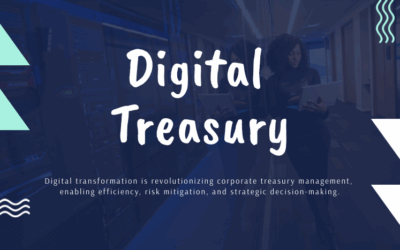The accounting industry is a testament to adaptability and evolution in the dynamic world of finance and business. As we navigate through 2023, several transformative trends are reshaping the accounting landscape. The profession is undergoing a metamorphosis from integrating cutting-edge AI and automation tools to the rising prominence of sustainability accounting. These shifts redefine traditional accounting practices and herald a future where data analytics, cybersecurity, and blockchain become integral to financial reporting and decision-making. The future of accounting is not just about numbers but about leveraging innovation to drive strategic insights and value.
Here are some trends that affect how accountants do business:
Automation and AI in Accounting: Integrating Artificial Intelligence (AI) and automation tools is expected to continue, streamlining routine tasks and improving accuracy.
As more firms transition from compliance-centric tasks to prioritize strategic advisory services, the emphasis on proactive client service intensifies. Here’s where AI steps in. AI excels in:
- Executing precise, well-defined tasks
- Converting data across formats
- Automating monotonous activities
- Performing computations rapidly and on a large scale
- Swiftly handling vast volumes of data.
Cloud Accounting: The future of accounting in the cloud promises a blend of technological prowess with human expertise, reshaping the way the industry operates and delivers value.
Sustainability Accounting: As businesses become more environmentally conscious, accountants might see an increased demand for sustainability reporting and green auditing.
Sustainability has emerged as a pivotal factor influencing modern accounting practices. As global awareness of environmental, social, and governance (ESG) issues intensifies, stakeholders, including investors, customers, and regulators, demand greater transparency and accountability from businesses regarding their sustainability efforts. In response, accountants are now tasked with ensuring financial accuracy and integrating ESG metrics into financial reports. This shift has led to “sustainability accounting” or “green accounting,” where environmental costs and benefits are quantified and reported. Such practices involve assessing a company’s carbon footprint, water usage, waste management, and social impact, among other factors. Furthermore, sustainability accounting aids in identifying potential risks and opportunities related to climate change, resource scarcity, and evolving regulatory landscapes. As sustainability becomes a core business strategy, accountants play a crucial role in ensuring that organizations’ sustainability claims are accurate, verifiable, and aligned with global standards, fostering trust and long-term value creation.
Data Analytics: Accountants are expected to leverage data analytics more intensively to provide insights, forecast trends, and advise clients.
Data analytics has profoundly reshaped the accounting landscape, infusing it with deeper insights and enhanced precision. Traditionally, accountants focused on recording and presenting historical financial data. However, with sophisticated data analytics tools, they can now proactively analyze vast datasets to uncover patterns, predict future trends, and provide strategic recommendations. This shift transforms accountants from mere number crunchers to strategic business advisors. Advanced analytics allows for real-time financial monitoring, fraud detection through anomaly recognition, and optimization of tax strategies by analyzing transactional data intricacies. Moreover, data-driven insights facilitate better decision-making, helping businesses identify growth opportunities, manage risks, and improve operational efficiency. As data becomes an invaluable asset, accountants equipped with analytics skills are better positioned to add value to organizations, ensuring financial practices are not just about compliance but about driving business forward through informed insights.
Cybersecurity in Accounting: With the increasing digitization of financial data, ensuring its security will be paramount. Accountants and firms will likely continue to invest more in cybersecurity measures.
Cybersecurity has become an indispensable facet of the digital age of the accounting industry. As accountants handle sensitive financial data and confidential client information, the need for robust security measures has never been more paramount. Cyber threats, ranging from phishing attacks to ransomware, pose significant risks, potentially compromising data integrity and client trust. Moreover, regulatory bodies increasingly emphasize the importance of data protection, leading to stricter compliance requirements for accounting firms. As a result, forward-thinking accounting professionals are investing in advanced security infrastructure, continuous employee training, and adopting best practices to safeguard data. Cybersecurity is not just a technical necessity but a fundamental component in maintaining the reputation and credibility of modern accounting practices.
Advisory Services: Beyond traditional accounting, firms might expand their services to include more advisory roles, helping clients with strategic planning and decision-making.
Data analytics has profoundly reshaped the accounting landscape, infusing it with deeper insights and enhanced precision. Traditionally, accountants focused on recording and presenting historical financial data. However, with sophisticated data analytics tools, they can now proactively analyze vast datasets to uncover patterns, predict future trends, and provide strategic recommendations. This shift transforms accountants from mere number crunchers to strategic business advisors. Advanced analytics allows for real-time financial monitoring, fraud detection through anomaly recognition, and optimization of tax strategies by analyzing transactional data intricacies. Moreover, data-driven insights facilitate better decision-making, helping businesses identify growth opportunities, manage risks, and improve operational efficiency. As data becomes an invaluable asset, accountants equipped with analytics skills are better positioned to add value to organizations, ensuring financial practices are not just about compliance but about driving business forward through informed insights.
Blockchain in Accounting: Blockchain technology, especially about cryptocurrencies, might play a more significant role in accounting practices.
At its core, blockchain offers a decentralized and immutable record-keeping system, ensuring that each transaction is securely recorded and verified across a network of computers. This presents a paradigm shift for accountants in recording and auditing financial transactions. The transparency and traceability inherent in blockchain can significantly reduce the time spent reconciling and verifying transaction data, potentially minimizing errors and fraud. Moreover, smart contracts embedded within the blockchain can automate and streamline various accounting processes, from invoicing to compliance checks. As the technology matures, blockchain’s anticipated to redefine traditional accounting methodologies, offering enhanced efficiency, security, and transparency.
Continuous Learning and Upskilling: Continuous learning will be crucial as the industry evolves. Accountants must upskill to stay relevant and updated with the latest tools and regulations.
Continuous learning and upskilling have become indispensable in the ever-evolving world of accounting. As financial regulations, technological advancements, and global business dynamics shift at an unprecedented pace, the traditional skill set of accountants is constantly challenged. To remain relevant and effective, professionals in the field must engage in ongoing education and skill development. By embracing continuous learning, accountants can stay abreast of the latest industry standards, software tools, and best practices. Upskilling, particularly in areas like data analytics, cybersecurity, and sustainability accounting, empowers them to offer a broader range of services and provide more strategic value to clients. Furthermore, a commitment to lifelong learning fosters a culture of adaptability and innovation within accounting firms, ensuring they remain competitive in a saturated market. In essence, continuous learning and upskilling are not just about individual professional growth; they are pivotal in shaping the future trajectory and resilience of the entire accounting industry.
Diversity and Inclusion: Firms will continue to focus more on creating diverse and inclusive work environments, reflecting global movements towards equity.
Diversity and inclusion have emerged as pivotal themes in the accounting industry, reflecting a broader global movement toward creating equitable workplaces. Recognizing the value of diverse perspectives, accounting firms actively seek to cultivate a workforce representing varied backgrounds, experiences, and thought processes. This diversity enriches the problem-solving and decision-making processes and resonates with a diverse clientele, fostering trust and understanding. Moreover, inclusive practices ensure that all employees, regardless of gender, race, age, or orientation, feel valued and empowered to contribute fully. As the industry evolves, embracing diversity and fostering an inclusive environment will drive innovation, enhance client relations, and ensure sustainable growth.
Regulatory Changes: With global economic shifts and business practice changes, accounting regulations and standards are constantly updated and modified.
The accounting profession is perpetually influenced by regulatory changes, reflecting the evolving economic, political, and social landscapes. These changes aim to enhance transparency, accountability, and the overall integrity of financial reporting. From tax code updates to financial statement presentation modifications, regulatory shifts ensure that accounting practices align with current business realities and stakeholder expectations. Such changes often require accountants and firms to learn continuously, adapting their methodologies and tools to ensure compliance. While these regulatory adjustments can pose initial challenges, they ultimately fortify the industry’s credibility, providing stakeholders can rely on financial statements and other accounting outputs for informed decision-making.
Staying Ahead of the Curve
In the dynamic world of finance and business, staying static is not an option for accountants who aspire to excel. The rapid pace of change, driven by technological advancements and shifting global paradigms, necessitates a vigilant eye on emerging trends. It’s imperative for accountants to not only be aware of these evolutions but to integrate them into their practices proactively. Doing so can ensure that their services remain relevant, competitive, and in tune with client expectations. Embracing change, however, requires more than mere acknowledgment; it demands a commitment to continuous learning, adaptability, and innovation. In essence, the future of accounting lies in the hands of those professionals who, while rooted in foundational principles, are agile enough to navigate and harness the winds of change.




